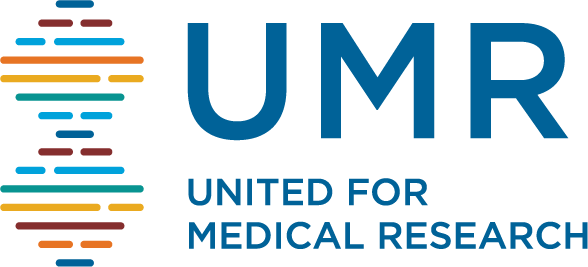April 19, 2010
Medical Research Coalition Applauds Additional Funding to Benefit Public Health and the Economy
WASHINGTON – United for Medical Research (UMR), a coalition of leading research institutions, patient and health advocates and private industry companies, applauds the support of a strong, bipartisan contingent of the nation’s governors to make increased biomedical funding for the National Institutes of Health (NIH) a priority in the FY2011 budget. The 25 governors voiced their commitment to the life sciences industry in a letter to Congress, asking them to meet the President’s request for $32.2 billion.
The governors highlighted the NIH’s ability to enable scientific talent and discoveries, leading to new treatments and cures for patients in need. The letter also highlighted the ability of biomedical research to serve as an economic engine in cities and states across the country, providing 350,000 jobs nationwide.
UMR appreciates this effort from state leadership across the country and will continue the drumbeat for strong, sustained funding for the NIH to improve both the lives of the countless patients who count on the results of biomedical research and the health of our national economy.
The text of the Governors’ letter follows:
Dear Chairmen Conrad and Spratt and Ranking Members Gregg and Ryan:
We, the undersigned governors, thank you for your past support for biomedical research and the National Institutes of Health (NIH), and ask you to craft a budget resolution that accommodates the President’s $32.2 billion FY 2011 NIH budget request.
The greatest contribution NIH makes is to the health and well-being of Americans. Past federal investments in medical research, combined with those from the private sector, have led to improved health, better quality of life, and improved productivity for millions of patients and their families.
But NIH is also an important national, regional, and local economic engine. Together, our states received more than $19 billion from the NIH last year for promising research efforts. NIH funding directly supports 350,000 jobs across the U.S. In our states, we see firsthand the world class research institutions and scientific teams enabled by NIH, as well as the indirect job benefits of laboratories needing space, supplies, services, and equipment. We are also deeply aware that NIH-funded discoveries are the basis of new companies and even new industries in our communities.
NIH research is an instrumental part of the success of the U.S. life sciences industry and its 6 million high wage U.S. jobs. Moreover, follow-on life science research advances are now stimulating new jobs and new solutions in green energy, agriculture, the environment and industrial manufacturing. NIH funding enables the scientific talent and discoveries that are at the heart of this vast array of economic activity.
As you develop the Congressional Budget Resolution, we urge you to enable the 3.2% funding increase for NIH contained in the President’s budget request.
With warm regards,
Governor Jim Doyle, Wisconsin
Governor Arnold Schwarzenegger, California
Governor Bob Riley, Alabama
Governor Bill Ritter, Jr., Colorado
Governor M. Jodi Rell, Connecticut
Governor Jack Markell, Delaware
Governor Pat Quinn, Illinois
Governor Chester J. Culver, Iowa
Governor Mark Parkinson, Kansas
Governor Steve L. Beshear, Kentucky
Governor Martin O’Malley, Maryland
Governor Deval Patrick, Massachusetts
Governor Chris Christie, New Jersey
Governor David A. Paterson, New York
Governor Bev Perdue, North Carolina
Governor Ted Strickland, Ohio
Governor Brad Henry, Oklahoma
Governor Theodore R. Kulongoski, Oregon
Governor Edward G. Rendell, Pennsylvania
Governor M. Michael Rounds, South Dakota
Governor Phil Bredesen, Tennessee
Governor James H. Douglas, Vermont
Governor Christine O. Gregoire, Washington
Governor Joe Manchin III, West Virginia
Governor Dave Freudenthal, Wyoming
